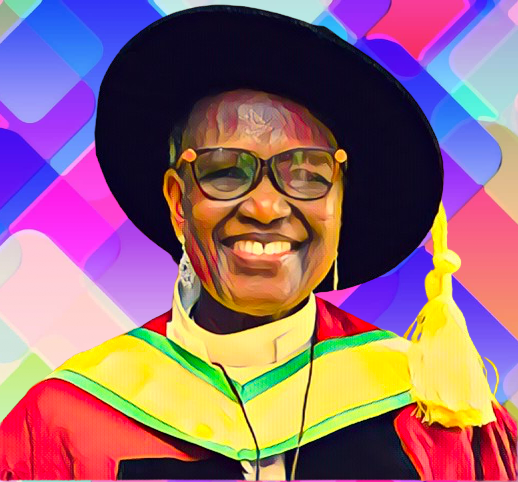Professor Grace Nkansa Asante of the Kwame Nkrumah University of Science and Technology (KNUST) has been promoted to full Professor of Economics, becoming the first female in Ghana to hold this distinguished academic title. The University Council recently approved her promotion, marking a significant milestone in the field of academia within the country.
Professor Nkansa Asante is currently serving as the Vice Dean of the Faculty of Social Sciences within the College of Humanities and Social Sciences at KNUST, a position that underscores her leadership and commitment to academic excellence. Her journey at KNUST has been marked by her tenure as the Head of the Department of Economics from 2019 to 2022, during which she played a crucial role in shaping the department’s direction and impact on students.
Her academic journey is extensive and well-rounded. She earned both her Bachelor’s and PhD in Economics from KNUST, and furthered her education with a master’s degree from the University of Ghana, Legon. Professor Nkansa Asante is also a Visiting Lecturer at the Joint Facility for Electives (JFE) of the African Economic Research Consortium (AERC), contributing to broader economic research and knowledge dissemination across Africa.
Professor Nkansa Asante’s research and teaching focus primarily on Economic Policy Analysis, Monetary Economics, and Financial Economics. Over nearly two decades, her scholarly work has significantly contributed to these fields, influencing economic policies and fostering a deeper understanding of economic dynamics among her students and peers.
Beyond her academic and research commitments, Professor Nkansa Asante is deeply involved in her community. She is an ordained priest in the Anglican Communion, serving at the Archbishop Thomas Cranmer Anglican Church at KNUST. This role highlights her dedication to service and her integral role in both her religious and academic communities.
Her previous roles include significant contributions as a research officer at the Governance Division of the African Development Bank in Abidjan. Here, she was involved in pivotal research initiatives that helped shape governance policies across the continent. Additionally, she has experience in public administration, having served at the Kumasi Metropolitan Assembly, where she applied her economic expertise to local governance and developmental strategies.
Professor Nkansa Asante’s promotion is not just a personal achievement but a landmark moment for women in Ghana and across Africa. It challenges the traditional gender roles within academia and economics, inspiring a new generation of women to aspire to similar heights in fields often dominated by men.





1 comment
Thank you for your sharing. I am worried that I lack creative ideas. It is your article that makes me full of hope. Thank you. But, I have a question, can you help me?